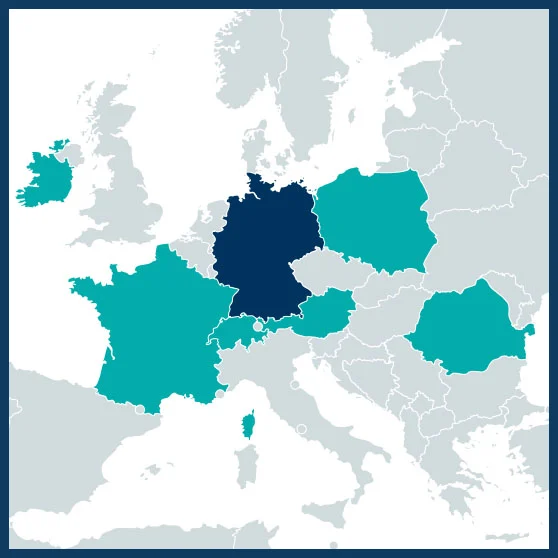01/02/2020 – 31/03/2023
€ 2,121,268
Thomas Berendonk
thomas.berendonk@tu–dresden.de
Coordinator: Environmental Science – Chair of Limnology – Technische Universität Dresden – Dresden – Germany
Division for Integrative Risk Assessment – Austrian Agency for Health and Food Safety – Vienna – Austria
Microbiology of materials and the environment (LCPME) – CNRS/Université de Lorraine – Villers–les–Nancy – France
Strategy and Consulting – Stadtentwaesserung Dresden GmbH – Dresden – Germany
Dep. of Biology – Maynooth University – Maynooth – Ireland
Institute of Microbiology – University of Warsaw – Warsaw – Poland
Dep. of Taxonomy and Ecology – Institute of Biological Research Cluj – Cluj–Napoca – Romania
Surface Waters – Eawag: Swiss Federal Institute of Aquatic Science and Technology – Kastanienbaum – Switzerland

Antimicrobial resistance (AMR) is one of the largest health-related issues world-wide. Reducing antibiotic consumption and other such measures at the source are important to lower antimicrobial resistance in medical contexts. However, they cannot reverse its evolution and they do not prevent antimicrobial resistance from disseminating through the environment, which causes cascading health issues, including in medical contexts.
The main objective is to test the hypothesis that the persistence, and the abundance and diversity, of clinically relevant antibiotic resistance genes (ARGs) and antibiotic resistant bacteria (ARB) in sediments and soil is inversely correlated to the biological diversity of invaded communities. ANTIVERSA will thus evaluate whether high biological diversity may act as an ecological barrier to the spread and persistence of ARB and ARGs from various anthropogenic contamination sources.
Experiments will include the natural microbial diversity across seven n tions in Central Europe. With these experiments we will be able to answer the question if the spread of antibiotic resistant bacteria originating from waste-water will be hindered by a microbial community with a high diversity. We will test this also for bacteria occurring in freshwater and soil. Here we will focus on streams which are behind the effluent of wastewater treatment plants and soil that is fertilised with manure. The results of these experiments will aid the development of regulations on maintaining water and soil quality.
Besides, specific activities to engage stakeholders (national and local authorities, management actors, civil society actors land local communities) will be implemented. Priorities of residents close to water ways and agricultural fields will be assessed. These assessments will include questions with respect to the importance of biodiversity, the concerns regarding contamination with pathogens and ARB. We endeavour an across generation stakeholder engagement. This will be facilitated with an involvement of selected schools located next to a large river (e.g. Elbe) and surrounded by intensive agriculture. Also, we will endeavour to involve the Model United Nations (MUN) which organises conferences by and for students from all over the world in order to simulate the work of the United Nations.